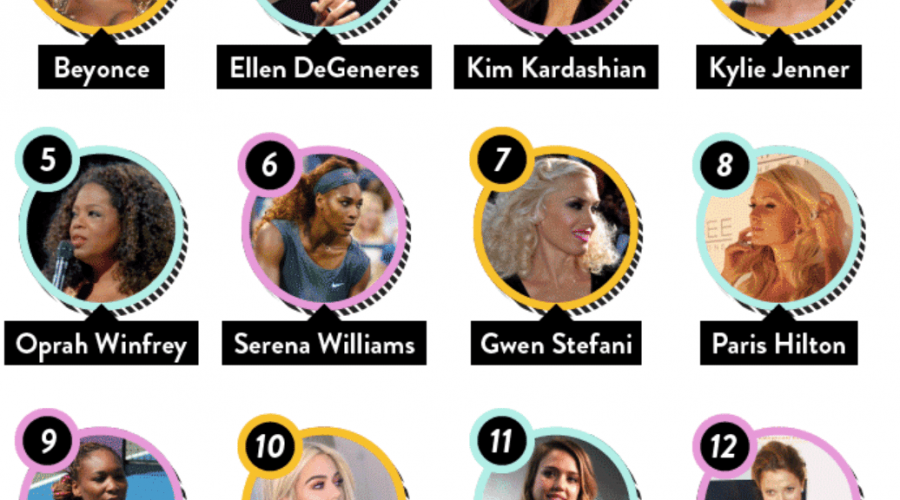I never tire of reading about how female megastar celebrities made their billions, except of course when I’m told that education had nothing to do with it.
New research by UK fashion brand Missy Empire, which looked into the wealth and power of 30 of the world’s most successful women, has revealed that 40 per cent of them made the bulk of their wealth during their 30s, and that 53 per cent did not have a university degree.
Of the list, the top ten richest female bosses include many women of inspiration, such as:
- Beyonce – Pop Diva
- Ellen DeGeneres – TV Personality/comic
- Kim Kardashian – Social media superstar
- Kylie Jenner – Cosmetics queen
- Oprah Winfrey – Do I really have to say. Journo turned media personality/guru
- Serena Williams – Tennis champ
- Gwen Stefani – Pop star
- Paris Hilton – Socialite
- Venus Williams – Tennis star
- Khloe Kardashian – social media superstar
While it’s not hard to see that many of these women may not have needed a formal university degree for their chosen field, the fact is that education be that on the sports field, in the arts or business, has played a huge part in their success.
I’m a big believer in the idea that you earn what you learn, and this lists displays women who in many ways have never stopped educating themselves in order to stay at the top of game.
For the rest of us non-celebrities, education is equally as relevant and potentially more so now than ever before.
Research conducted by the Grattan Institute found that the average female bachelor graduate earns more than those completing their year 12 high school certificate.
Between 2006 and 2016, the annual earnings gap between male grads with a bachelor’s degree and males who only had Year 12 qualifications stood at $1780; for females the gap was $1280, according to Grattan Institute’s Mapping Higher Education report.
While male graduates earn about 4.8 per cent more on average than female graduates, as cited by the latest Financy Women’s Index, that gap is likely to be affected by the fact that women tend to choose lower paying career pathways such as Health and Education compared to men with Engineering and Information Technology.
According to the Women’s Index, more women than men are enrolling in tertiary studies to better their qualifications.
In fact over the last decade, women aged 18–64 years have been consistently more likely than men in this age group to have attained a Bachelor Degree or above, according to the November 2018 ABS Gender Indicators Report.
Roger Wilkins Deputy Director of the Melbourne Institute of Applied Economic & Social Research at the University of Melbourne said that despite a record number of women enrolling in tertiary studies, for much of the past two decades, the educational progress of Australian women has not delivered nearly the same degree of labour market progress.
This point presents women, employers and policy makers with a challenge.
Government, education bodies and business need to consider supportive measures that ensure the pool of women obtaining higher educational qualifications are moving through to the labour market and are also encouraged to return after career breaks to have children.
Mr Wilkins adds that policies and awareness campaigns that promote men taking a greater role in raising the children, and undertaking other household work, and which increase use of child care will probably help address out dated but persistent gender norms.













